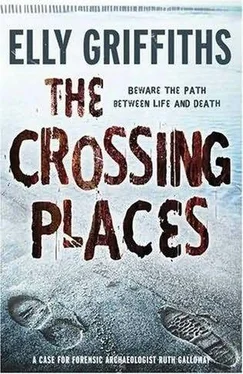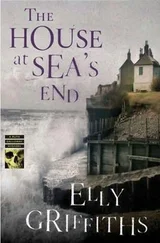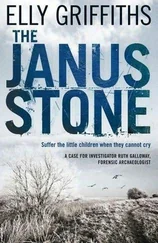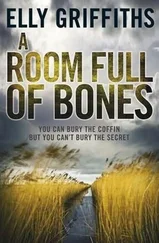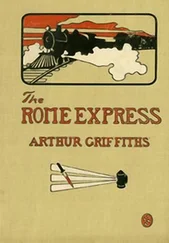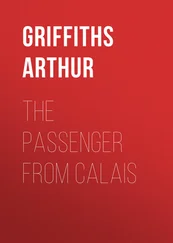'Yes,' says Ruth. 'It might be.'
'Glad someone's happy.' As soon as Ruth is out of the car he drives off without saying goodbye. She doesn't think she will ever see him again.
Nelson cuts across two lanes of traffic as he heads into King's Lynn. His car is unmarked but he makes it a point of honour always to drive as if he is pursuing a suspect. He enjoys the expressions on the faces of the clueless uniforms when, after pulling them in for speeding, he flourishes his warrant card. In any case, this route is so familiar that he could drive it in his sleep: past the industrial park and the Campbell's soup factory, along the London Road and through the archway in the old city wall. Doctor Ruth Galloway would be sure to tell him exactly how old this wall is: 'I can't be that exact but I estimate that it was built before lunch on Friday 1 February 1556'. But, to Nelson, it just represents a final traffic jam before he reaches the police station.
He is no fan of his adopted county. He is a northerner, born in Blackpool, within sight of the Golden Mile. He went to the Catholic grammar school, St Joseph's (Holy Joe's as it was known locally) and joined the police as a cadet, aged sixteen. Right from the start, he'd loved the job. He loved the camaraderie, the long hours, the physical exertion, the sense of doing something worthwhile. And, though he would never admit it, he'd even liked the paperwork.
Nelson is methodical, he likes lists and schedules, he is excellent at cutting through crap. He'd risen through the 32
ranks and soon had a pretty good life: satisfying work, congenial mates, pub on Friday nights, the match on Saturdays, golf on Sundays.
But then the job in Norfolk had come up and his wife, Michelle, had been on at him to take it. Promotion, more money, and 'the chance to live in the country'. Who in their right mind, thinks Nelson, thinking of the Saltmarsh, would want to live in the bloody country? It's all cows and mud and locals who look like the result of several generations of keeping it in the family. But he'd given in and they had moved to King's Lynn. Michelle had started working for a posh hairdressing salon. They'd sent the girls to private schools and they'd come back laughing at his accent ('It's not bath, Daddy, it's ba-arth…'). He'd done well, become a detective inspector in double quick time, people had even talked of higher things. Until Lucy Downey went missing.
Nelson turns, without indicating, into the station car park. He is thinking of Lucy and of the body on the marsh.
He had always been sure that Lucy was buried somewhere near the Saltmarsh, and when the bones were found he thought that he was near an ending at last. Not a happy ending, but at least an ending. And now this Doctor Ruth Galloway tells him that the bones are from some bloody Stone Age body. Jesus, all that stuff she'd spouted about henges and burials and being able to walk to Scandinavia.
He'd thought she was taking the piss at first. But, when they got to the site, he could see she was a professional. He admired the way that she did everything slowly and carefully, making notes, taking photos, sifting the evidence. It's the way that police work should be done. Not that she'd ever make a policewoman. Too overweight, for one thing.
What would Michelle say about a woman so out-of-condition that she is out of breath after a five-minute walk? She would be genuinely horrified. But, then, he can't think of any situation in which Michelle would meet Doctor Ruth Galloway. She's not likely to start popping into the salon, not from what he could see of her hair.
But she interests him. Like all forceful people (he calls it forceful rather than bullying), he prefers people who stand up to him, but in his job that doesn't happen often.
People either despise him or kowtow to him. Ruth had done neither. She had looked him in the face, coolly, as an equal. He thinks he's never met anyone, any woman, quite as sure of themselves as Ruth Galloway. Even the way she dresses – baggy clothes, trainers – seemed to be a way of saying that she doesn't care what anyone thinks.
She's not going to tart herself up in skirts and high heels just to please men. Not that there's anything wrong with pleasing men, muses Nelson, kicking open the door to his office, but there's something interesting, even refreshing, about a woman who doesn't care whether or not she's attractive.
And the things she said about ritual were interesting too.
Nelson is frowning as he sits behind his desk. Talking about ritual and sacrifice and all that crap has brought it all back: the days and nights spent in fingertip searches, the anguished meetings with the parents, the gradual, unbearable shift from hope to despair, the station full to bursting point, teams brought in from six different forces, all dedicated to finding one little girl. All in vain.
Nelson sighs. However much he tries not to, he knows that, before he goes home tonight, he will read through the Lucy Downey files.
It is pitch black by the time Ruth drives home, edging her car carefully along New Road. There are ditches on both sides of the road and the merest twitch on the wheel can send you plunging ignominiously downwards. This has happened to Ruth once before and she is not keen to repeat the experience.
Her headlights illuminate the raised tarmac of the road; the land drops away on either side so that she seems to be driving into nothingness. Nothing but the road ahead and the sky above. Where the earth meets the sky. She shivers and turns on the car radio. Radio 4, soothing, civilised and slightly smug, fills the car. 'And now for the News Quiz…'
Ruth parks outside her broken blue fence and pulls her rucksack out of the boot. The weekenders' house is in darkness but the warden has a light on upstairs. She assumes he goes to bed early so as to be up for the dawn chorus. Flint appears on her doorstep mewing piteously for admittance even though he has his own cat-flap and has, in fact, been snoozing inside all day. Remembering she hasn't yet seen Sparky, Ruth feels a pang of anxiety as she opens the door. But Sparky, a small black cat with a white nose, is sleeping safely on the sofa. Ruth calls her but she stays put, flexing her claws and shutting her eyes. Sparky is a reserved character, quite unlike Flint who is now weaving ecstatically around Ruth's legs.
'Stop it, you stupid cat.'
She drops her rucksack on the table and puts down food for the cats. Her answer phone light is flashing. She has a feeling that it won't be good news and when she presses PLAY she is right. Her mother's voice, aggrieved and slightly breathless, fills the room.
'… whether you're coming for Christmas. Really, Ruth, you could be a bit more considerate. I heard from Simon weeks ago. I assume you'll be coming because I can't imagine you'll want to spend Christmas on your own in that awful…'
Ruth clicks delete, breathing hard. In just a few short sentences her mother has managed to encapsulate years of irritation and subtle put-down. The accusation of inconsiderate behaviour, the comparison with the perfect Simon, the implication that, if she doesn't visit her parents, Ruth's Christmas will consist of an M amp; S meal for one in front of the TV. Angrily sloshing wine into a glass (her mother's voice: 'How are your units Ruth? Daddy and I are worried you're getting dependent…'), Ruth composes a reply. She will never give it in person but it is comforting to stomp around the kitchen, cutting her mother down to size with thin slices of logic.
'The reason I haven't told you about Christmas is that I dread coming home and hearing you drone on about the Christ child and the true meaning of Christmas. Simon has been in touch because he's a creep and an arse-licker. And if I don't come home I'll be with my friends or on some tropical island, not alone slumped in front of The Vicar of Dibley. And my house isn't awful, it's a hundred times better than your Eltham semi with its pine cladding and vile china ornaments. And Peter didn't finish with me, I finished with him.'
Читать дальше
